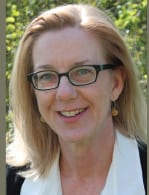Doublespeak Is No Cure for Utility Ills
After a very busy March, I just wanted to run a collage of puppy photos in this editorial. After all, baby animals are proven to generate engagement on social media, so why not in print? Then I saw a Twitter post about a new communications plan for the Edison Electric Institute (EEI), which represents investor-owned utilities (IOUs).
What Is the Definition of “Community”?
First, I need to clarify that I didn’t go looking for a reason to criticize the EEI. In fact, I had already favorably mentioned efforts by multiple EEI utilities in the first of our cover stories. And the problems with the EEI communications plan are ones that you can see across the power sector, so consider this free communications consulting for the industry as a whole.
This was the tweet, posted by Miles Keogh (@kidcongo) on March 29:
So if utilities are calling utility solar “community solar” what do I call community solar? Asking for a friend. https://t.co/htFhXxwcBL
— Miles Keogh (@kidcongo) March 29, 2016
Having heard about community solar’s origins in 2003, in an actual community—Ellensburg, Washington—and having assigned an article on the trend to Kennedy Maize last year (see “Solar Gardens: A Fast-Growing Approach to Photovoltaic Power” in our May 2015 issue), I was interested in reading the story linked in this tweet. In “This Messaging Guru Is Helping Utilities Clean Up Their Appearance,” Kate Sheppard, senior reporter/environment and energy editor for The Huffington Post (HuffPo), writes about how the EEI has hired “New York crisis communications expert Michael Maslansky to help develop a new communication plan that would be presented to members this month [March].”
The HuffPo article focused on a comment made at a January EEI board meeting (a recording of the meeting was provided to HuffPo by an attendee) regarding the rebranding of utility-owned solar installations as “community solar” because focus groups found the latter term more appealing. “We should proceed with the terminology that is more favorable to us,” HuffPo quoted Brian Wolff, EEI’s executive vice president for public policy and external affairs, as saying. “And ‘community’ is clearly more favorable to us.”
The aspect that most irked me (and others) is that the EEI is trying to co-opt a term that is already in common use. As widely understood, “community solar” is a photovoltaic (PV) project that is typically developed by a third party (or, when developed by a utility, more often by munis or co-ops than IOUs) that enables individual customers to buy shares in it. The installation is developed on a suitable site and lets those who would not otherwise be able to own PV (because they are renters or do not have an appropriate roof) to participate in supporting renewable generation and, where available, net metering programs. In short, it’s not the same thing as an IOU-owned solar plant.
Nobody Appreciates Me
It may seem unfair to single out this one example from a larger communications plan, but I’ll explain at the end why it’s not. Note, too, that the “EEI 2016 Outlook,” linked to in the HuffPo article, presents this initiative second in a list of 53 items. It reads: “Launch of a national educational and advocacy strategic initiative to highlight the industry’s transformative leadership and to create a heightened awareness of and appreciation for member company initiatives.”
Though Maslansky told HuffPo that the communications plan is “an effort to help power companies better relate to their customers,” the focus on creating a “heightened awareness” and “appreciation for” utility efforts seems like a one-sided relationship to me.
I frequently hear folks in the power industry complain that the public doesn’t understand their industry. Electricity customers don’t understand the intricacies of operating a thermal power plant, or how grid balancing works, or the challenges of meeting environmental regulations. Usually, I just let such folks vent, but sometimes I point out that the public (and the utility folks I’m talking to) also don’t understand the intricacies of medical diagnoses and surgery, nor all the steps it takes to produce this magazine. You want appreciation? Get in line with every other industry and profession, or get a dog.
A Missed Opportunity
Sarcasm aside, I suspect many customers would welcome more open communications with (not just from) utilities. But these days it seems many companies are more interested in protecting revenue than in devising win-win business models that meet customer desires as well as shareholder expectations. There are no linguistic shortcuts to that sort of relationship. To rebrand utility-owned solar as “community solar” is disingenuous at best and manipulative at worst.
In contrast, there are countless ways the EEI and other associations could design initiatives to help educate the public about the actual, but evolving, facts of electricity production and consumption. Many could even be relationship builders. Imagine how much better informed the public would be. (Some will counter that a well-informed citizenry is exactly what both distributed renewables advocates and traditional utilities do not want, but as a former educator, I’m on the side of education.)
By engaging in the sort of doublespeak that substitutes “community” for “utility”—especially when it’s coming from shareholder-owned rather than municipally or cooperatively owned utilities—contributes to the very problem utility people like to complain about: misunderstanding of the electricity system.
The power industry relies on precision engineering, and its participants care about precise language when it comes to the difference between a megawatt and a megawatt-hour (especially where energy storage is concerned) and the distinction between capacity and generation (especially where variable renewables are concerned). The public has a right to expect the same precision when the industry talks about itself and its actions. ■
—Gail Reitenbach, PhD is POWER’s editor.
